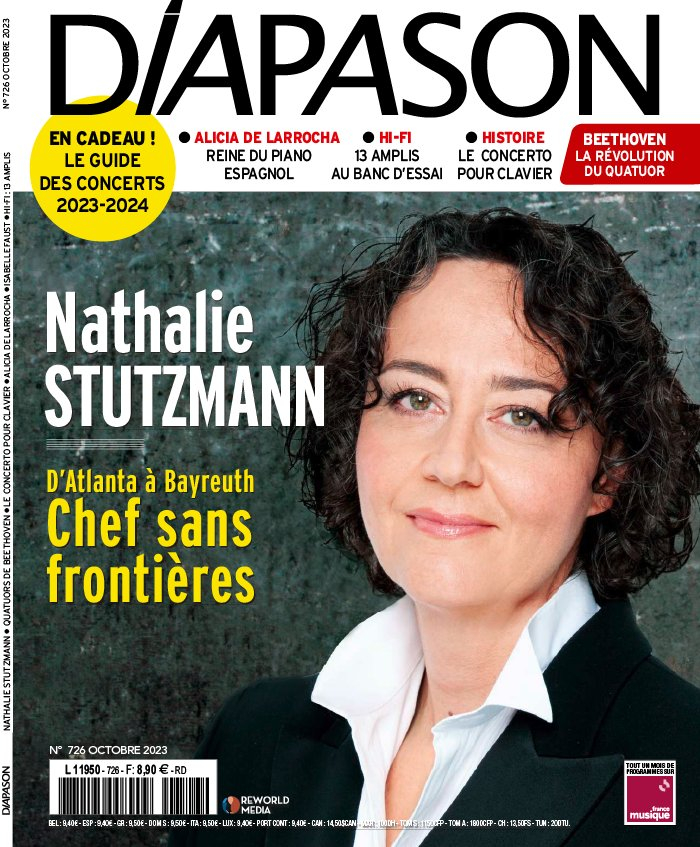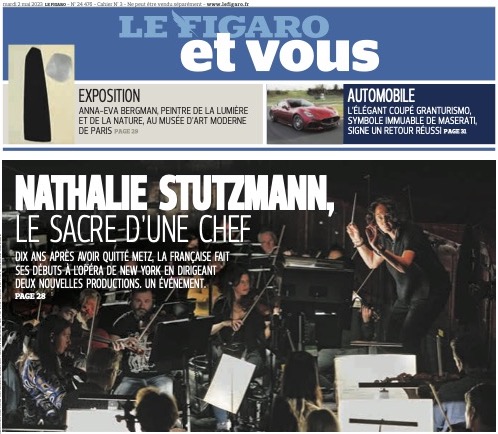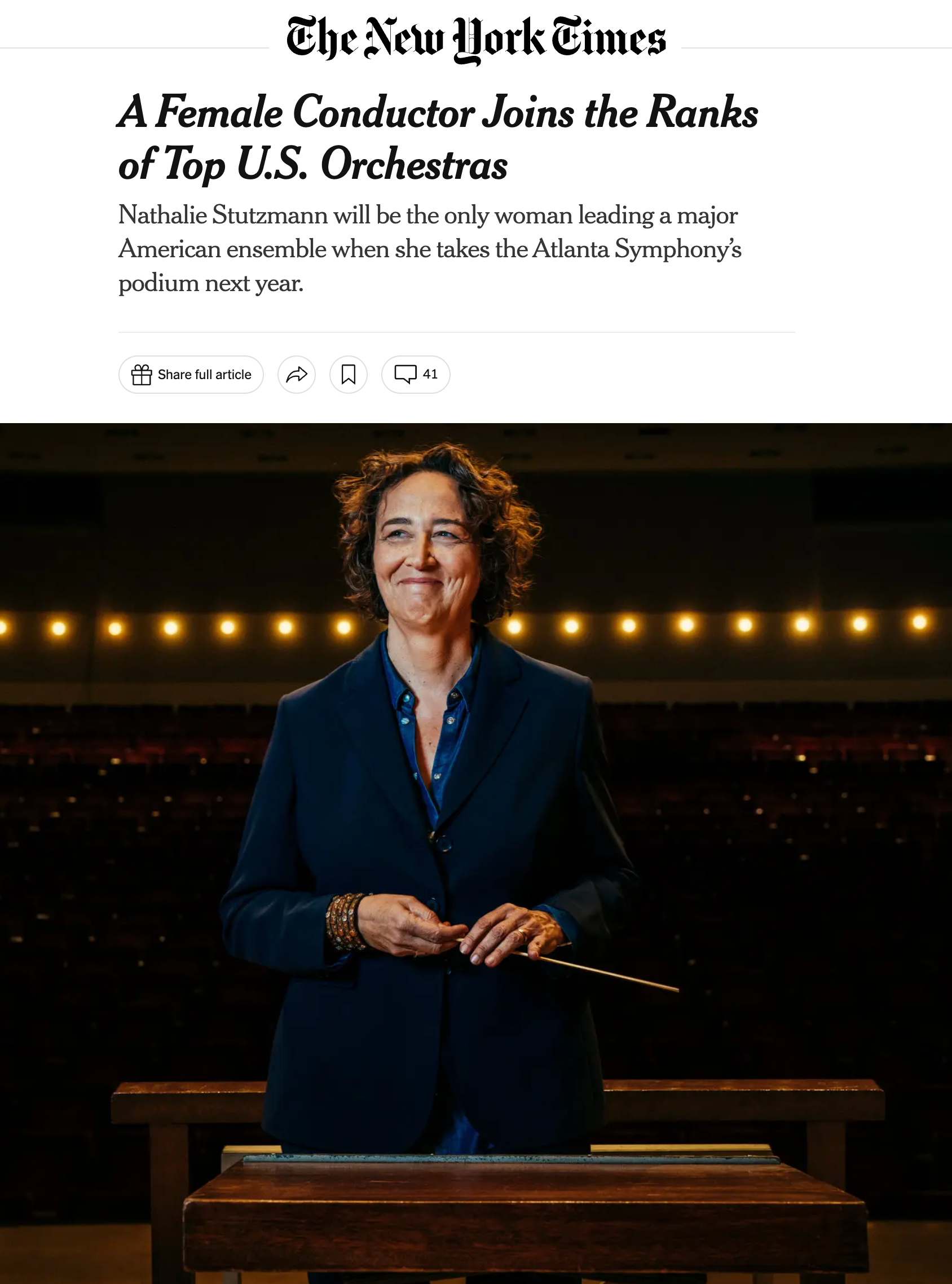
Rencontre : NATHALIE STUTZMANN
Elle vient de faire des débuts triomphaux à Bayreuth après le Met de New York, fourmille de projets avec son Orchestre d’Atlanta, y compris au disque. Prix de la passion et de la ténacité, Nathalie Stutzmann est désormais l’un des chefs les plus en vue de la planète lyrique et symphonique.

ENTRETIEN – Désormais en poste à l’orchestre symphonique d’Atlanta, la française fait ses débuts au Metropolitan de New York en dirigeant deux nouvelles productions. Une première historique.
Dans la fosse, sa haute silhouette en impose. Tout comme sa voix. Ronde mais autoritaire. Ferme mais sans dureté, lorsqu’il s’agit de reprendre un chanteur qui n’est pas dans le tempo. De faire ressortir avec plus de sensualité les basses de l’orchestre. Ou d’intimer au metteur en scène Ivo van Hove de chercher une solution, pour éviter à une chanteuse d’arriver essoufflée sur scène. «Mon passé de chanteuse m’aide à comprendre lorsqu’un chanteur risque d’être en difficulté à cause d’un élément extérieur», plaide-t-elle.
En cette fin avril, Nathalie Stutzmann est au Metropolitan Opera sur tous les fronts. Dans une semaine, elle présidera à la première de la nouvelle production de Don Giovanni, dans la vision narrative d’Ivo van Hove, aux impressionnants décors vus à Paris avant la pandémie. Quinze jours plus tard, elle enchaîne sur La Flûte enchantée, mis en scène par Simon McBurney. Encore une nouvelle production pour le Met. Les deux vont se chevaucher jusqu’à fin mai. «Un doublé historique…
On October 18, Nathalie Stutzmann was featured in NBC News‘ popular Today Show and spoke to Jenna Bush Hager about her journey as a conductor and her new position with Atlanta Symphony Orchestra.

Nathalie Stutzmann will be the only woman leading a major American ensemble when she takes the Atlanta Symphony’s podium next year.
The 25 largest orchestras in the United States have something in common: Not one is led by a woman.
But that is about to change. The Atlanta Symphony Orchestra announced on Wednesday that it had chosen Nathalie Stutzmann, a conductor and singer from France, as its next music director.
Stutzmann, 56, will be only the second woman in history to lead a top-tier American orchestra when she takes the podium in Atlanta next year. She follows Marin Alsop, whose tenure as music director of the Baltimore Symphony Orchestra ended in August after 14 years.
Stutzmann said she hoped her selection would inspire other orchestras to appoint women.
“I’m not looking for a world dominated by women,” she said in a video call. “I’m just looking for equality — that we will one day not be considered as a minority, but as musicians, conductors and maestros.”
